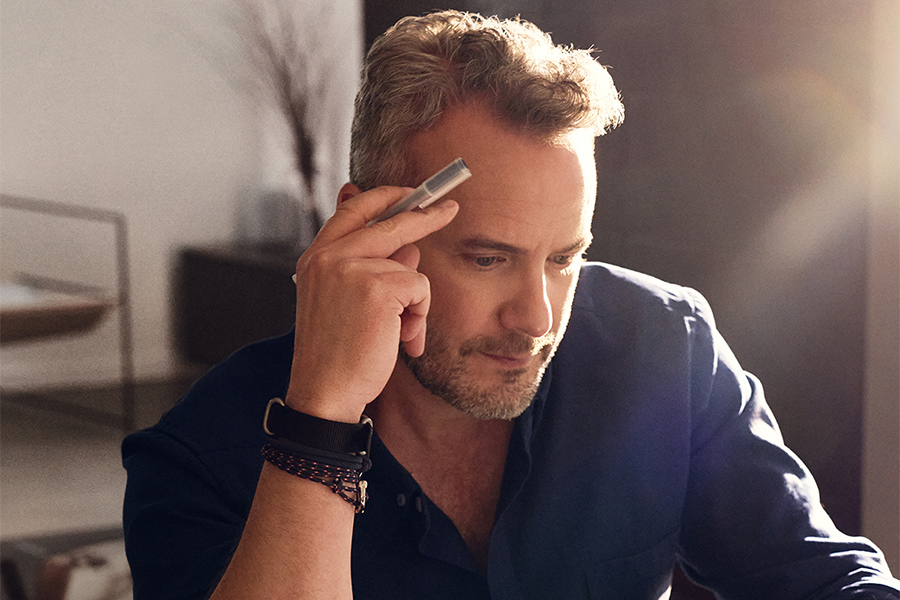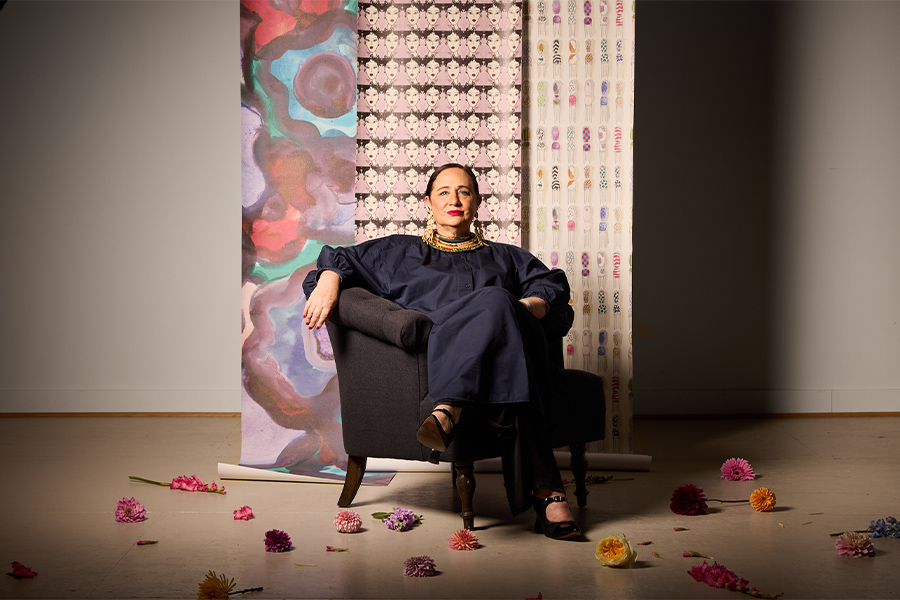Aside from the porcelain factory he spent several years converting into his Philadelphia home, Everett Abitbol had little experience rehabbing real estate. But amid the rise of Uber and Lyft, Abitbol, the founder of a taxicab fleet spanning five cities, began to lose interest in the transportation industry. Instead, he started hatching plans for a convivial hotel and events hub.
The First African Baptist Church, built in 1906, was long a fixture of the Black community in Philadelphia’s Graduate Hospital neighborhood. When Abitbol first looked at the building, it was in danger of being demolished, with one of its walls falling into the street. But he was compelled by its history and envisioned restoring it as “a community asset,” he says, reinforced by the preschool on the lower level. As much a destination for cultural performances as accommodations, the eight-room Deacon debuted in 2019, fostering a sense of camaraderie inspired by the University Club of San Francisco, a property that Abitbol and his family once took over for a wedding. “All the doors were open to our rooms, and we meandered about,” he recalls.

Maldonado’s love for color is seen in the Deacon, which retains some of the former First African Baptist Church’s architectural elements
Shannon Maldonado, the Philadelphia-bred founder of local lifestyle boutique and design studio Yowie (Abitbol first became smitten with her style when he spotted an Air Jordan sneaker rendered in cement in the window of her pre-brick-and-mortar pop-up), crafted the Deacon’s Bauhaus-influenced interiors.
When she walked into the former church for the first time, Maldonado was immediately attracted to its warm aura. “It was such a sacred space. I wanted to honor that through some of the details without pretending it wasn’t a church,” she explains. Stained glass windows and vaulted ceilings remain, as does the altar, which has been converted into the kitchen.
Abitbol and Maldonado’s collaboration was so fruitful that it spawned their second adaptive reuse property, the just-arrived Dye House in Providence, Rhode Island’s Olneyville neighborhood. Most recently the home and studio of ceramicists Jim Schatz and Peter Souza, the former dye house for the American Woolen Company now features four suites—one stars a mural reproduction of the 18th-century painting Promenade au Parc by Louis Carrogis Carmontelle—teeming with designs from local artists and makers like Ben & Aja Blanc and O&G Studio. A link throughout is the navy and salmon color palette that captures Maldonado’s “version of modern and preppy,” she says.

Original stained glass from the Deacon’s previous life as a church appears in a guestroom
Like the Deacon, Dye House is meant for gathering, whether it’s a Providence chef using the culinary loft for a one-off dinner or community soirées that revolve around the likes of making guacamole. It is a welcoming spirit that will also permeate Yowie Townhouse, Abitbol and Maldonado’s next venture. Merging an expanded Yowie retail space with a café, photo studio, and hotel, it will be situated on a Philadelphia street once known for the fabric shops that Maldonado frequented with her mother as a child. Abitbol also has hopes to roll out an ambitious hotel-student housing hybrid on the beach in Narragansett, Rhode Island, anchored by a courtyard for events.
For Abitbol, raised in low-income housing by a single mother in Brooklyn, New York, “public space was the only way I got out of our small apartment,” he remembers. Whereas the condominium boom worries Abitbol that “we are losing [community] space to something private,” the Deacon and Dye House aim to break down barriers for their neighbors “by opening up our doors in such a public way.”

The Twill suite features custom pieces by local makers, a staple at Dye House
This article originally appeared in HD’s June/July 2021 issue.
More from HD:
3 Installations Make Strong Statements
The Hall Arts Hotel Paints a Vivid Picture in Dallas
The 36 Most Anticipated Hotel Openings of 2021


